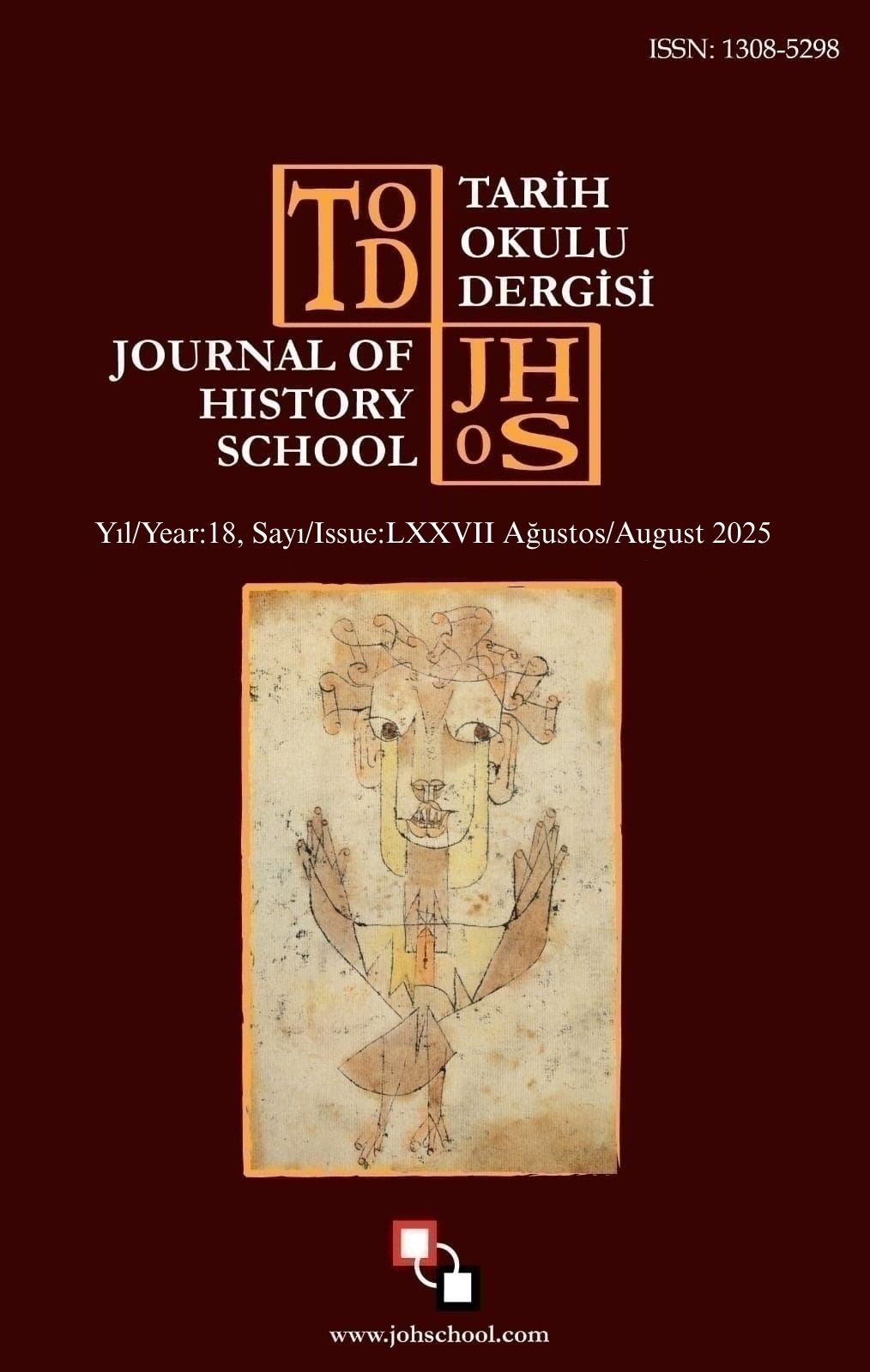Author :
Abstract
Marifet kelimesi karşılığı olarak kullanılan irfân kelimesi bilmek, tanımak anlamlarına gelmektedir. İrfân sözcüğü, bilgi kelimesinin masdar halidir. Tarihi, kültürel ve felsefi derinliği olan bu kelime yüzyıllardır devam eden bir düşünce ve anlama serüveninin eylem bulmuş halidir. Bu serüven sonrasında edebiyat, felsefe, tekke tasavvuf edebiyatı, tasavvuf düşüncesi, bilgi felsefesi gibi alanlarında irfân geleneği olarak karşımıza çıkmaktadır. İnsanın hakikat arayışındaki şifreleri, sosyal hayata dair problemlerin tespiti ve problemlerin çözümü, insanı sadece kendisinden ibaret görmeyen diğer canlılarla ve insanlarla ortak yaşama ve toplumsal birliği sağlamak için gerekli olan bilgileri ve uğraşı serüveni irfan geleneğinin alanıdır. Derviş, eren, alperen, veli, hal ehli, ârif gibi kavramlar irfân geleneğinin temsilcileri olan kişi ve şahsiyetleri ifade etmektedir. Bu şahsiyetler sözlü ortamlar ve yazılı metinler aracılığıyla bu geleneğin anlaşılması ve aktarılmasında öncü rolü üstlenmişlerdir. İrfân geleneği mensupları irfân sahibi olarak da bilinirler. İrfân arayışı serüveni, ilme ait olan bilginin ötesinde o bilginin derinliklerine, anlama ve kavrama arayışına bunun neticesinde ulaşılan irfân merkezli bir hakikate uzanan bir yolculuktur. Ahmet Yesevi, Şeyh Edebali, Yusuf Has Hacip, Yunus Emre, Nasreddin Hoca, Mevlâna Celaleddin Rumi, Hacı Bektaş Veli, Kaygusuz Abdal, Süleyman Çelebi, Akşemseddin, Elvan Çelebi, Abdal Musa, Kul Himmet, Eşrefoğlu Rumi, Şeyh Şaban Veli, Pir Sultan Abdal, Niyazi Mısri, Kul Nesimi, Seyrani ve burada adları bulunmayan birçok şahsiyet bu geleneğin temsilcileridir. Anadolu irfân geleneğinin temsilcilerinden birisi de Hacı Bayram Veli’dir. Yaşadığı dönem, hayatı, eserleri, tarikatı, öğrencileri ve yetiştirdiği halifeleri ile dikkat çeken Hacı Bayram Veli, günümüzde de kendisinden söz edilen bir şahsiyettir. Bu çalışmada dinî tasavvufi Türk edebiyatının önemli temsilcilerinden, hayatı ve eserleri ile yaşadığı dönemden günümüze kadar insanların muhabbetini ve teveccühünü kazanmış olan Hacı Bayram Veli Anadolu irfânı bağlamında ele alınacaktır. Böylece Anadolu irfânı ve özellikleri, bu geleneğin önemli bir temsilcisi olan Hacı Bayram Veli’nin hayatı, yaşadığı, dönem, takipçileri, eserleri ve günümüze kadar süren etkileri değerlendirilecektir.
Keywords
Abstract
The term “irfan” (gnosis), used as the equivalent of “marifet” (knowledge), means to know and to recognize. The word “irfan,” which also describes the process of knowing and comprehending knowledge, is the verbal noun form of the word “bilgi” (knowledge). This term, which possesses historical, cultural, and philosophical depth, represents the actualized form of a centuries-long adventure of thought and understanding. Following this adventure, it emerges as a tradition of gnosis in fields such as literature, philosophy, tekke-sufi literature, sufi thought, and epistemology. The tradition of gnosis is founded upon understanding, intuiting, interpreting, and putting into practice knowledge beyond mere information. The domain of the gnostic tradition encompasses the codes in humanity's quest for truth, the identification of problems concerning social life and their solutions, the knowledge and endeavors necessary to ensure communal living with other beings and humans without viewing man as consisting solely of himself, and achieving social unity. Concepts such as dervish, eren (saint), alperen (spiritual warrior), veli (saint), hal ehli (people of spiritual states), and arif (gnostic) refer to the persons and personalities who are representatives of the gnostic tradition. These personalities have assumed a pioneering role in understanding and transmitting this tradition through oral environments and written texts. Members of the gnostic tradition are also known as possessors of gnosis. The adventure of seeking gnosis is a journey that extends beyond knowledge belonging to science to the depths of that knowledge, to the quest for understanding and comprehension, and consequently to a gnosis-centered truth attained as a result. Ahmet Yesevi, Sheikh Edebali, Yusuf Has Hacip, Yunus Emre, Nasreddin Hodja, Mevlana Celaleddin Rumi, Hacı Bektaş Veli, Kaygusuz Abdal, Süleyman Çelebi, Akşemseddin, Elvan Çelebi, Abdal Musa, Kul Himmet, Eşrefoğlu Rumi, Şeyh Şaban Veli, Pir Sultan Abdal, Niyazi Mısri, Kul Nesimi, Seyrani, and many other personalities whose names are not mentioned here are representatives of this tradition. One of the representatives of the Anatolian gnostic tradition is Hacı Bayram Veli. Hacı Bayram Veli, who attracts attention with his era, life, works, tariqa (sufi order), students, and the caliphs he trained, is a personality who continues to be spoken of, is not forgotten, and whose influence is felt even today. In this study, Hacı Bayram Veli, one of the important representatives of religious-mystical Turkish literature who has earned the affection and favor of people from his era to the present day through his life and works, will be examined within the context of Anatolian gnosis. Thus, Anatolian gnosis and its characteristics, as well as the life of Hacı Bayram Veli, an important representative of this tradition, the period he lived in, his followers, his works, and his continuing influences to the present day will be evaluated.





